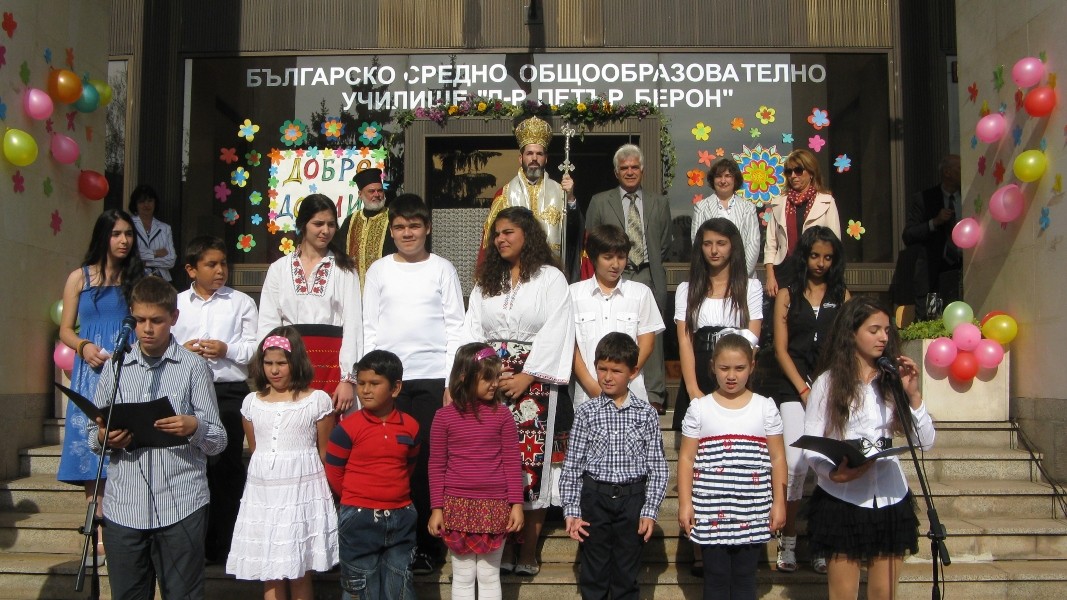“I think of Bulgaria constantly, because I work in the bus transport sector and every day I am in contact with dozens of Bulgarians travelling from Bulgaria to Czechia. People who are desperate from their lives in Bulgaria arrive here on a daily basis. They leave their relatives, children and parents and come in Czechia in search of a better life. Only few Bulgarians come here on excursion” – this is how the story of a Bulgarian who left his home country 31 years ago begins.
Krassimir Bachev settled in Prague before the beginning of the democratic changes in Bulgaria and founded a company for bus services. Prices of plane tickets were not affordable back then and Bulgarians were travelling to Spain, Germany and the Scandinavian countries via Czechia mainly by bus. In the beginning of the 1990’s Krassimir was the person who was welcoming the arriving Bulgarians on Czech land. He recalls that most people were driven by poverty and the inability to find a job in their home town.
The number of Bulgarians in Czechia was constantly growing. There is a Bulgarian school in Prague. Shortly before it was closed due to the coronavirus pandemic, it did not have enough capacity to admit all Bulgarian children who wanted to study there.

“Many children leave Bulgaria together with their parents instead of staying with their grandparents and sometimes with distant relatives”, says Krassimir and continues:
 “There are some shortcomings with our communication with the state- this is one of the main problems the Bulgarian citizens living abroad face. In the past, everything was controlled, organized and synchronized by the state. Now, I am witnessing the country’s failure to understand the problems of Bulgarians abroad. Other countries support their minorities abroad, finance their initiatives and do their best to maintain their lobby abroad. We all know that Bulgarians working abroad are constantly helping their relatives in Bulgaria with money. Bulgarian emigrants in Czehia send thousands of Koruna to their home country every day.”
“There are some shortcomings with our communication with the state- this is one of the main problems the Bulgarian citizens living abroad face. In the past, everything was controlled, organized and synchronized by the state. Now, I am witnessing the country’s failure to understand the problems of Bulgarians abroad. Other countries support their minorities abroad, finance their initiatives and do their best to maintain their lobby abroad. We all know that Bulgarians working abroad are constantly helping their relatives in Bulgaria with money. Bulgarian emigrants in Czehia send thousands of Koruna to their home country every day.”
There were two main groups of Bulgarians in Czechia during the communist period – foreign exchange students and workers employed predominantly at the vegetable growing sector. They were known in Czechia as “the Bulgarian gardeners”. They taught the Czech people how to grow vegetables, brought new crops to this country and had good reputation. That is why people would say “One works as a Bulgarian” which meant that a person would do anything to do a given job.
In Krassimir Bachev’s view, the lack of interstate communication regarding the personnel issue, which was a priority before 1989, is a great shortcoming at present.
“On one hand, we are talking about the need of more production and investments. On the other hand, however, everything is abandoned and people who are coming to Czechia are left to fend for themselves” – Krassimir Bachev went on to say. In his words, Bulgarians are facing a series of problems no matter where they live, but these problems cannot be solved through protests. The economic crisis can be felt in Czechia as well, but in Krassimir Bachev’s words, protests are the last thing the Bulgarian emigrants in this country have time for. “Those who are very busy with their jobs cannot be seen at protests in Czechia. They see no point in protesting in this situation”, Krasimir Bachev contends.
English version: Kostadin Atanasov
Three-time world champion and Olympic weightlifter Carlos Nasar will be holding a special event with the Bulgarian community in London on 23 November. According to the organisers, it will be an open conversation in which Nasar will discuss his journey..
On 16 November, we celebrate Caritas Day, when we honour the Catholic Church’s charity organisation that brings hope to those in need through care and acts of mercy . It reminds us that financial gain is not what matters most. What truly matters is..
The first museum of investment gold is welcoming visitors in Plovdiv who want to learn more about the history of money and its connection to gold – from the birth of gold, its cosmic origin, and its journey to Earth, to how this precious metal has..

+359 2 9336 661
